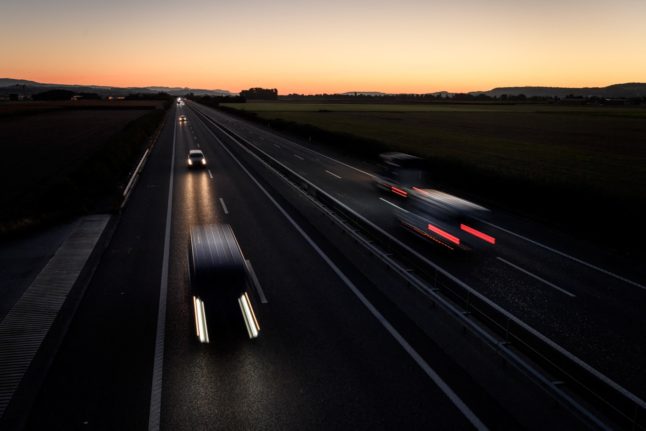Switzerland’s advocacy body for sustainable transport policy, the Transport Club of Switzerland (VCS) announced their yearly agenda for 2024 at press conference in Bern on Thursday.
Founded in 1979, the VCS has lobbied on issues such as the rapid overdevelopment of the country’s road and motorway network, and the lowering of speed limits in residential areas – both of which featured in the 2024 announcement.
Continued opposition to expansion of the nation’s motorways
Much of the VCS’s work in 2024 will be focused on supporting a federal referendum initiated in January of 2024 by the ‘Stop Motorway Expansion Alliance’ – itself an initiative of the VCS – that seeks to block the both the widening of existing motorways and the building of new highways linking parts of the country.
The referendum was prompted by the government’s announcement in September 2023 of a spending package of over three and a half million Swiss francs. Freeways and motorways in Switzerland are a federal matter, overseen by the Federal Roads Office, or FEDRO.
Read More: Why Switzerland’s roads are among the safest in the world
The VCS cites the increased pollution, time spent in traffic jams and the demolition of community resources as grounds for their support for the referendum.
In leading the press conference, VCS President Ruedi Blumer told the press: “The VCS referendum against the motorway expansion is an opportunity to send a groundbreaking signal against the current wrong path and for a more sustainable, responsible transport policy.
Promotion of the ‘30 km/h’ model
The VCS will continue lobbying cantons and cities across Switzerland to maintain a maximum speed limit of 30 kilometres an hour in residential areas, while urging the federal government to remove any remaining restrictions to introducing or enforcing such a model.
Presently, the speed limit in urban areas is set at 50 kilometres per hour, as established by the country’s Road Traffic Act.
Read More: Switzerland mulls reducing speed limit on motorways
Citing the success of 30 kilometres speed limit zones in countries such as Finland and Swiss cities such as Fribourg, the VCS believes such a move would safeguard pedestrians and cyclists, lower noise and reduce pollution.
Speaking at the press conference, VCS Vice-President Isabelle Pasquier-Eichenberger stated: “The cantons and cities should be able to implement appropriate solutions based on their needs and not be prevented from doing so by rigid national regulations.”
Further support for Switzerland’s public transport network
Finally, Bruno Storni, VCS Vice-President addressed the club’s continued support for public transport investment in Switzerland, and criticised the government’s spending priorities.
Addressing government spending, Storni noted: “In the next few decades, the federal government wants to invest over 35 billion francs in road infrastructure. Currently, 22 billion francs have been earmarked for the expansion of the railway infrastructure.
“Switzerland invests the more money in the most environmentally harmful means of transport and the least in the most efficient and environmentally friendly means of transport.”
Additionally, the SSB’s SwissPass initiative was singled out for criticism, as well as the incoming ‘MyRide’ system that threatens to replace paper tickets.
Read More: SwissPass: An essential guide for using Switzerland’s public transport ticket
“This particularly applies to the intention to establish a new standard with the planned “myRide” fare system, which only works via tracking via smartphone”, said Storni.
“This would mean that all public transport users who cannot or do not want to switch to this sales channel would be excluded or disadvantaged.
“Furthermore, “myRide” provides an individual tariff that is only calculated after the journeys and changes with every kilometre driven. We consider this to be problematic because the important price transparency is missing.”



 Please whitelist us to continue reading.
Please whitelist us to continue reading.
Member comments